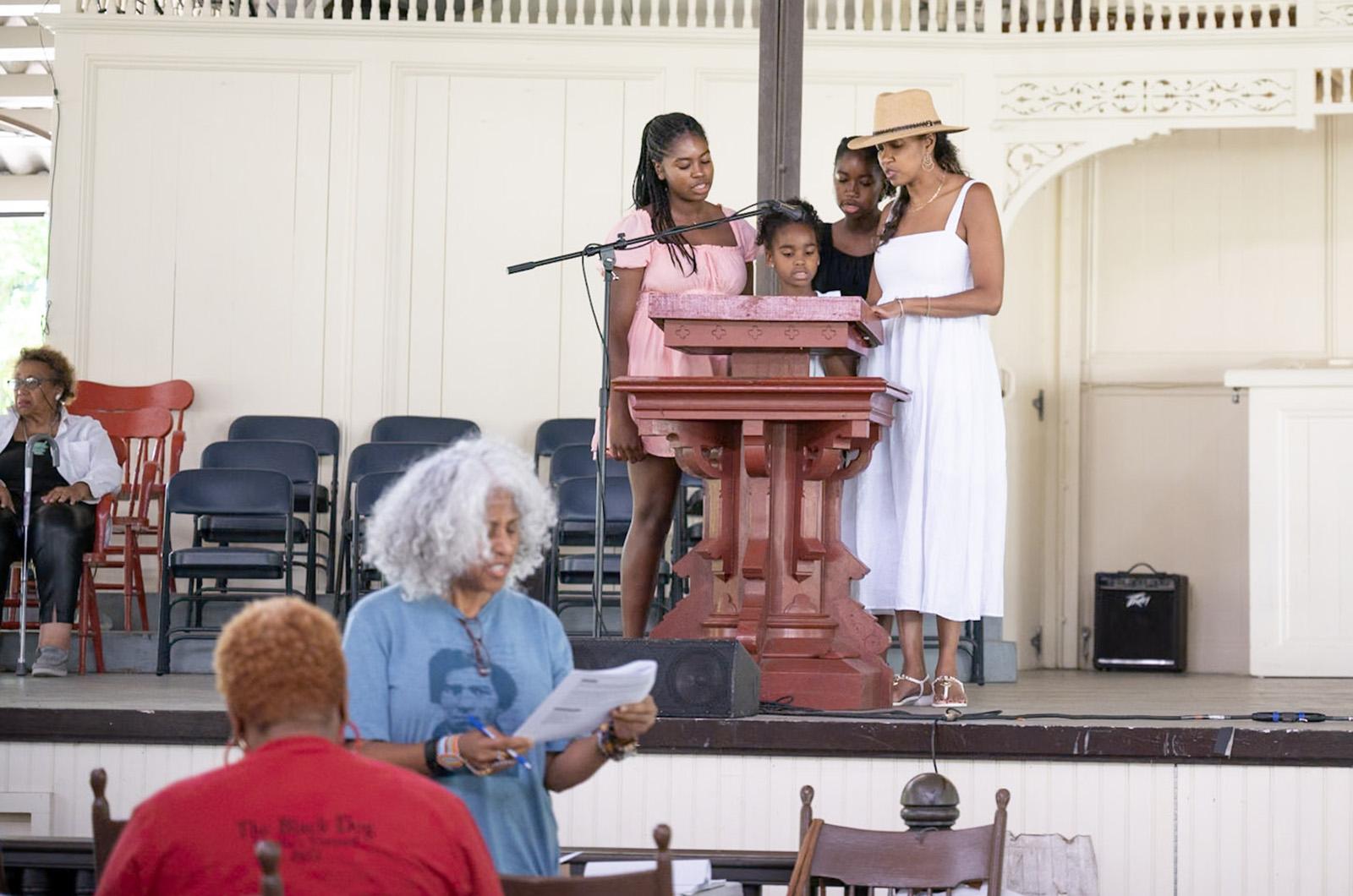On July 4 at the Tabernacle, I joined two dozen neighbors in reading Frederick Douglass’ speech, What, to the Slave, Is the Fourth of July, which he delivered on July 5, 1852 in Rochester, N.Y.
It has been a wonderful custom for the past 20 years on our Island. When we finished last Thursday, I wondered what Douglass would say to our country today. What regional sins would he identify as deeper national failings that, unless confronted and rooted out, would threaten the integrity and soul of our nation in the way that slavery did in 1852?
I believe there are four conditions that Douglass would tell us to change radically if we want to survive as a democratic nation: police killings of Black men and women; stark economic injustice; reproductive rights for women; and incipient tyranny.
For Black men today, arrest for lawful conduct is common, followed by abuse or, as the nation has seen too often on TV, murder at the hands of the police. Beyond illegal arrests, beatings and murder, Black men and women constitute approximately one-third of our nation’s prison population of 1.2 million and receive, as in Douglass’ time, disproportionally harsher sentence for their offenses. As with the Fugitive Slave Law, we all know these facts, yet acquiesce in a broken system that continues to wreak havoc with Black lives and families.
Although he did not mention economic injustice as such, Douglass was clearly outraged by the privation of Black slaves compared to the comfortable lives of both southern slaveowners and northern “lords, nobles and ecclesiastics” who continued to support a society that they knew to be unjust. With the gross distortion of wealth in American society now evident to all, it is clear that the cleavage between those who have too much and those who have too little falls most heavily on Black and other Americans of color, perpetuating an economic injustice that began with slavery’s stolen labor, continued through Reconstruction and remains an often insurmountable economic hurdle for millions of families today.
For Douglass, slavery was “a horrible reptile...coiled up in your nation’s bosom” that needed to be flung away before it destroyed the republic. I believe he would see today’s brazen transfer of wealth from the poor and the middle class to the country’s super-rich moguls as the same kind of viper that threatens to undermine, and eventually overturn, our democracy.
Although Douglass did not mention women’s rights in his speech, he was a strong and pioneering supporter of the campaign to recognize women’s right to vote, having been present at the first public meeting of the suffrage movement in Seneca Falls, N.Y. in 1856. The thought that men, acting through male-dominated state legislatures, could prescribe binding rules for women’s reproduction would, I think, have offended his sense of human dignity and recalled all too closely the abusive power that slaveowners claimed over Black women.
One theme of American history that Douglass did not attack in his speech was the courage of American leaders and citizens in breaking free from the British Crown and establishing a republic based on the principles of the Declaration of Independence and the Constitution, rather than subjugation of the public to a king. He insisted that those principles, to have meaning, be applied equally to Black Americans, both free and enslaved, and not simply to whites. How would he react to the current erosion of our democratic institutions and the continuing threats to our Constitution by a would-be tyrant and complicit legislators and courts? I think Douglass would have been disappointed, but not surprised, that so many citizens now seem willing to compromise the principles underlying our democracy, especially including voting rights, either because of indifference or because they fear those rights when exercised by people of color.
There are many other challenges facing our nation today and I do not know how Frederick Douglass would have dealt with the proliferation of guns throughout our society, effort to impose a fraudulent religiosity on our secular institutions, racist hostility to immigrants or denial of climate change that threatens the most vulnerable. I am confident, though, that he would have recognized the underlying fear, hypocrisy or selfish indifference behind all of these threats and would have urged each of us to respond forcefully if we wish to preserve our union from the several vipers coiled on our nation’s breast.
Stephen Kass lives in Chilmark.




Comments
Comment policy »